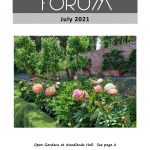Thought for the Week – 11th July 2021
I promise this is the last thought I will write about football, at least for this month….
By the time you read this, you may already know. Some of you may simply not care. But for those of us who have the affliction of following football, and following England in particular, Sunday evening looms with a mixture of excitement and anxiety. Sport can do strange things to your emotions. Some will simply not be able to bring themselves to watch; fear will remove any pleasure. Others will maintain an easy confidence; of course we will win, but I suspect that is a front (or simple over-confidence). Most fans will watch, cheering and groaning at regular intervals. Oh the agony and the ecstasy! I’ve twice seen Kidderminster Harriers lose at Wembley in extra time; unless you have had the pain, you don’t appreciate the glory. At its best, playing or watching competitive sport, you understand passion accepting and embracing life for what it is, but dreaming of what it might ultimately be, always hoping.
Perhaps these thoughts give some insight into parts of the bible? My passion as a football supporter helps me understand some of what St Paul writes, as he describes the agonies and ectasies of his own life as a Christian minister:
“ We are afflicted in every way, but not crushed; perplexed, but not driven to despair; persecuted, but not forsaken; struck down, but not destroyed… So we do not lose heart… For this slight momentary affliction is preparing us for an eternal weight of glory beyond all measure, because we look not at what can be seen but at what cannot be seen; for what can be seen is temporary, but what cannot be seen is eternal.”
So get behind your team and your life.
Rev David Poyner
Grand Auction

Thought for the Week – 4th July 2021
For me it was last summer that it really struck home; watching the international cricketers “taking the knee” before play. This was of course from the “Black lives matter” movement, a gesture that originated in the United States. I had seen it at the protest marches in this country, but seeing it at cricket matches brought home to me how it had captured people’s imagination. Now it occurs at the start of every professional football match in this country and at most games in the Euros. The gesture has not been without controversy but I have to say I find it a useful reminder of our need to stand against acts of injustice, whether deliberate or unintentional. I have to say I find it baffling when teams are booed for the gesture. Symbolic gestures are of course ingrained in the church; perhaps the most familiar is folding hands when praying, something drummed into people of my age at school assemblies. This may have originated as an aid to stop distraction, but it is now recognised as a sign that the person is praying. As with taking the knee, this may or may not be useful. It can be insincere. There is also the potential for embarrassment…. There are photos of myself, taken when I was ordained, where I seem to be sickeningly pious with my hands clasped together. I now cringe when I see them, but they truthfully capture a moment when, for me, it was exactly the right thing to do; the movement spoke more than any words I may or may not have been uttering. This says something important about symbols. Speaking is not the only way of communicating; our movements, kneeling, clasping hands, can be very clear statements about how we feel. We need to be mindful of the effect that they might have on others, just as do with words, but we should not neglect the power of our body language to express our deepest emotions and aspirations.
Rev David Poyner
July Forum
Thought for the Week – 27th June 2021
As a scientist, I am ultimately judged by the work I produce. The way that is done in science is by publishing results in papers in specialist journals; these describe the work and its significance. But beyond that lies much politics. Most projects involve a number of people; how many of these have contributed enough to be included as authors? Then there is the order of authors; first author usually did most of the experiments, the final author usually planned it; 2nd or 3rd from first or last isn’t too bad; not good if you are the middle where most end up. The person in charge of the paper sometimes needs considerable tact and diplomacy in order to draw up the author list. Equally, an important lesson for a young scientist to learn is a true estimation of their own value in a project. False modesty and inappropriate self-importance are equally wrong; the former as it simply encourages the latter individuals in their own delusions.
Jesus never had to sort out the author list on an academic paper, but he did have to deal with egos of his followers, some of whom seem to have been very keen on status. He used the story of guests at a wedding to urge his followers to sit at lowest place on the table, not the highest. There is perhaps a danger that this can be seen as way of getting approval, as the host, very publicly, has to encourage the individuals to a better place. But the most striking teaching is at the last supper, when Jesus, very much in charge of the event and clearly the leader, takes on the role of a servant to wash the feet of his disciples. Here Jesus demonstrates how it is possible to reconcile being a leader with acting a servant to those he had to lead. It is the balance between recognising our worth (with the responsibilities that brings) alongside a recognition of the value of others.
Rev David Poyner


